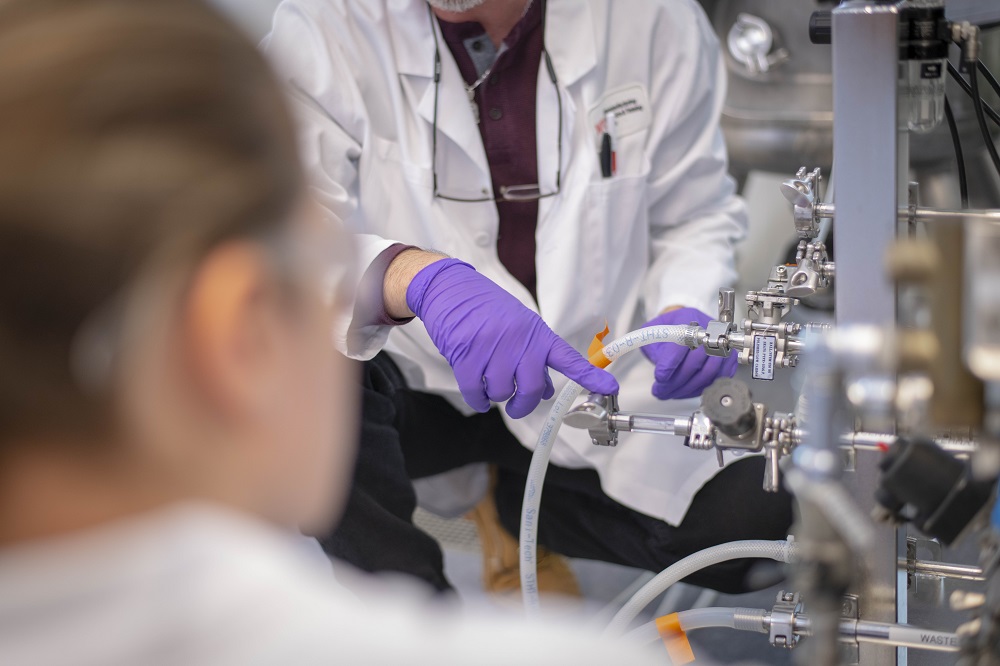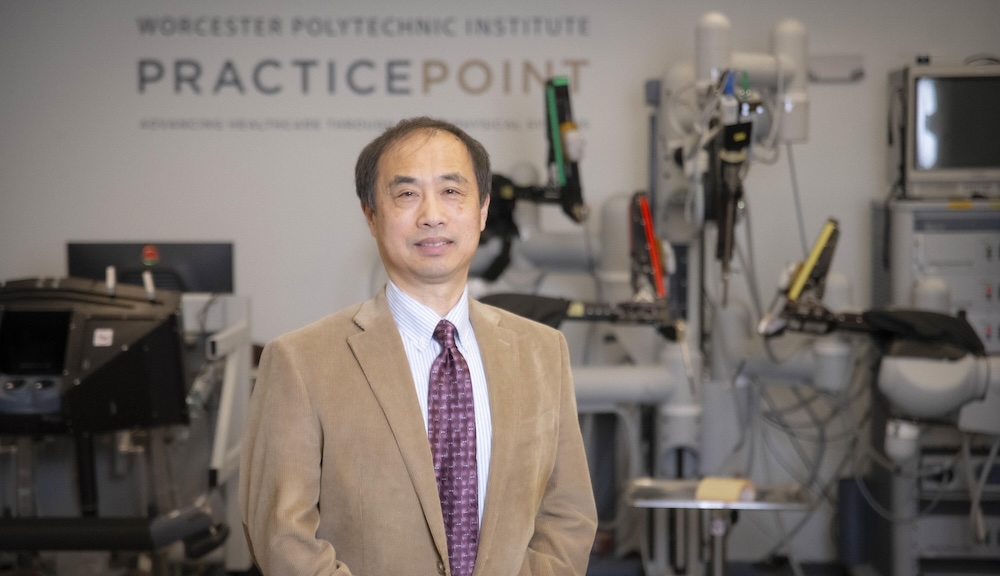
Worcester Polytechnic Institute is launching the Biomanufacturing Education and Training Center (BETC) with two main goals: expanding the multi-layered workforce the biomanufacturing industry needs to grow, and educating the individuals who will advance the sophisticated work of producing medicines and research compounds using engineered living cells. Funded in part by a grant from the Massachusetts Life Sciences Center, the BETC will be a hub of education, training, and innovation, serving students and life sciences companies from across the region and the globe.
"After several years of thoughtful planning, and with the vital support of our public and private partners, we are pleased to be moving this important new center from planning to construction," said WPI President and CEO Dennis D. Berkey. "The BETC exemplifies WPI’s commitment to workforce development in the life sciences."
Biopharmaceuticals are medicines produced by living cells, then isolated, purified, and packaged for patients. The therapeutic protein insulin, for example, is now manufactured by genetically engineering bacteria to produce large quantities of the protein. The fastest growing segment of the therapeutics industry, biopharmaceutical companies have produced new medicines to treat cancer and inflammatory and infectious diseases, while also creating new jobs and economic opportunity. Increasingly, however, the biomanufacturing industry is limited by a lack of qualified employees at every level: from equipment operators, to quality control lab analysts, to senior-level scientists. WPI has created the BETC to fill that critical gap today and to foster the development of life sciences leaders and entrepreneurs for generations to come.
The BETC will be a fully functional biomanufacturing pilot plant with industry-standard process areas of equipment preparation, buffer and media preparation, fermentation and cell culture, product capture, purification, and analytics. It will be operated by WPI, but will have industry personnel involved at every step—from curriculum design to mentoring students in the center’s various programs. The BETC will give WPI’s graduate and undergraduate students opportunities to work on projects that are relevant to the industry, while learning the real-world business practices and workflows of life sciences companies. Biomanufacturing companies will use the BETC as a training center for new or existing employees, thereby avoiding the capital and productivity costs typically associated with in-house training programs.
"What makes the BETC a unique resource is the blending of academic and industrial expertise, within the context of a working pilot-scale biomanufacturing plant that resembles the environment where the students will eventually work," said Stephen Flavin, WPI’s vice president for academic and corporate development. "Furthermore, we have designed the BETC to be highly flexible and adaptable, because we believe this synthesis of academic and industrial activity will accelerate innovation and process development. With WPI faculty, students, and industrial experts all in the mix, we expect the BETC will help evolve the best practices of biomanufacturing by providing a content-rich and applied experience that serves both employer and employee."
The launch of the BETC will expand WPI’s already significant presence in the life sciences; over the past seven years, WPI has invested more than $100 million in life sciences education, research, and infrastructure. These investments have come in the form outstanding new faculty, supported by the most up-to-date technology and lab space. Most notably, WPI has invested $65 million in Gateway Park, bringing to life a comprehensive urban redevelopment project that transformed a blighted and underutilized area in Worcester’s core into a clean, thriving, mixed-use park that is home to a growing range of academic, research, and commercial enterprises. The first building at Gateway Park, the 125,000-square-foot WPI Life Sciences and Bioengineering Center, opened in 2007.
The BETC will be located in a new four-story building at Gateway Park. The O’Connell Development Group of Holyoke, Mass. will construct and own the building. A groundbreaking ceremony is scheduled for April 21, 2011, with occupancy expected in late 2012.


